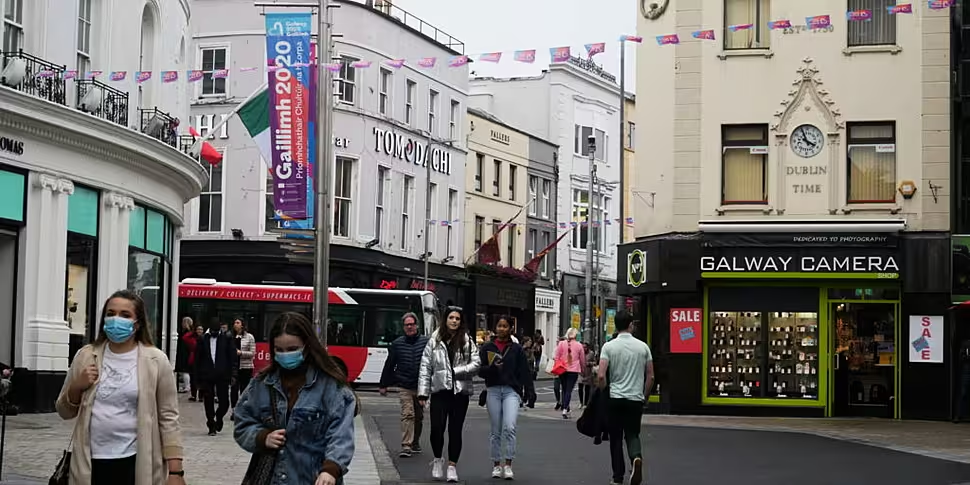An entire generation of young people should not be tarred with a single brush over their adherence to COVID-19 restrictions.
The CEO of Spunout.ie, Ian Power, said that blaming one group for the transmission of the virus would only further deter them from following the guidelines.
He said that many aspects of young people's lives have been impacted by the pandemic, including employment, social activity, and relationships.
He added that rather treating the group in a derogatory way, they should be empowered as "soldiers" in fighting COVID-19.
Speaking on Newstalk Breakfast with Susan Keogh, Mr Power said: "People have to feel empowered, they can't feel beaten down or trampled down.
"I think trying to tar an entire generation with a single brush and to be talking about them in a derogatory way is only going to end up in one way.
"If you're going to say to young people, 'you're all responsible for the transmission of the virus', and not acknowledge that young people are out there in the community, they're out there working in the low paid jobs that are going to come into contact with this disease much more than other people who are at home, then, of course, you're going to end up with a group of people who are fed up.
"We have kept the majority of young people with us to date, I think what's really important is that when we're coming out of this set of restrictions, we really try to keep them with us over the Christmas and New Year period.
"We have to try and do what we can, not just in a communications sense but also with actual policy, how can we enable young people, in particular, to be soldiers in this virus.
Mr Power said that the number of young people who are now unemployed has more than doubled during the pandemic, which has an impact on their wellbeing.
He said: "Lots of the different aspects of their life have been affected, not least employment.
"37.5% of young people are unemployed at the moment according to the Minister for Finance during his own budget speech.
"It's a huge number, normally it would be somewhere around double the national average, anywhere between 12 and 15%.
"That's a huge number of young people that are suddenly out of work and without purpose and purpose is so important for mental health and wellbeing."
Relationships and social connections have also been negatively affected during the pandemic.
He said: "In terms of your personal development, when you're at that age between 16 and 25 and 16 and 34, you're out there, you're looking for someone to settle down with.
"It's very easy for people who have maybe found that person and locked down with that person, that's a less of a chore than somebody who maybe hasn't had the chance to find that person.
"When you're younger, social connection is so important, particularly I think of those first years in college who have left one set of friends behind and they're trying to make a new social circle through Zoom and it's just not possible.
"It's really a quite difficult time and I think there's been quite a bit of acknowledgement of that.
"Hopefully we'll see different policy responses for young people as we emerge from this set of restrictions.
Mr Power agreed with the comments of the WHO's Dr Mike Ryan who said that telling young people what not to do all the time isn't enough, rather we have to encourage better behaviour
He added: "I think that there are people in Government who had already moved to that view already and we've had conversations with them over the last number of weeks.
"That's about how do we empower young people, how can we tell young people what they can do safely, how can we think about ways to reduce the possible harm of young people socialising and how can we do it in a controlled way, and how can we share different messages."









